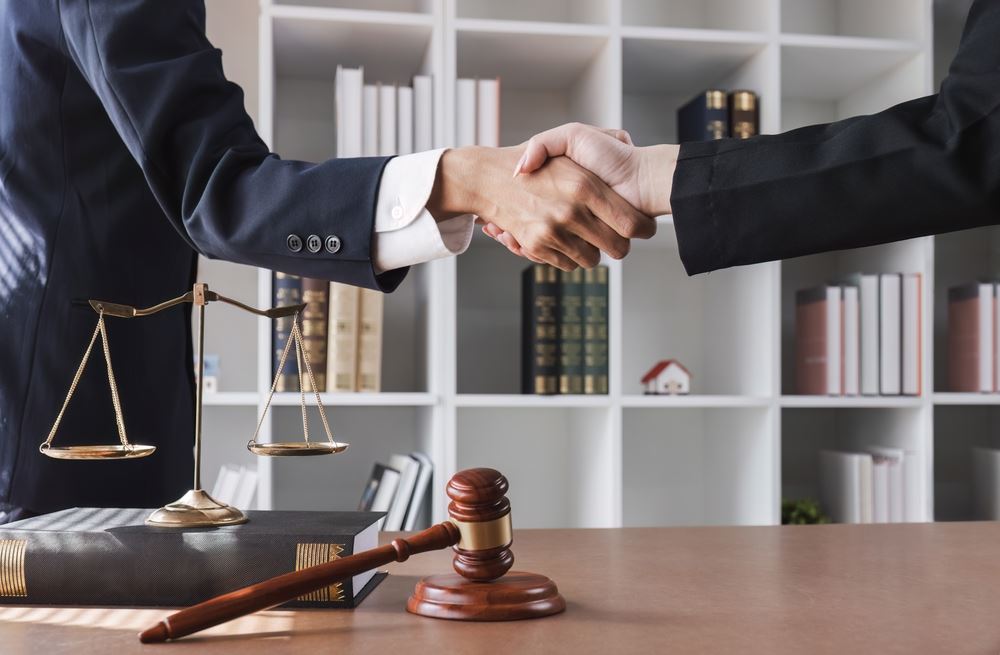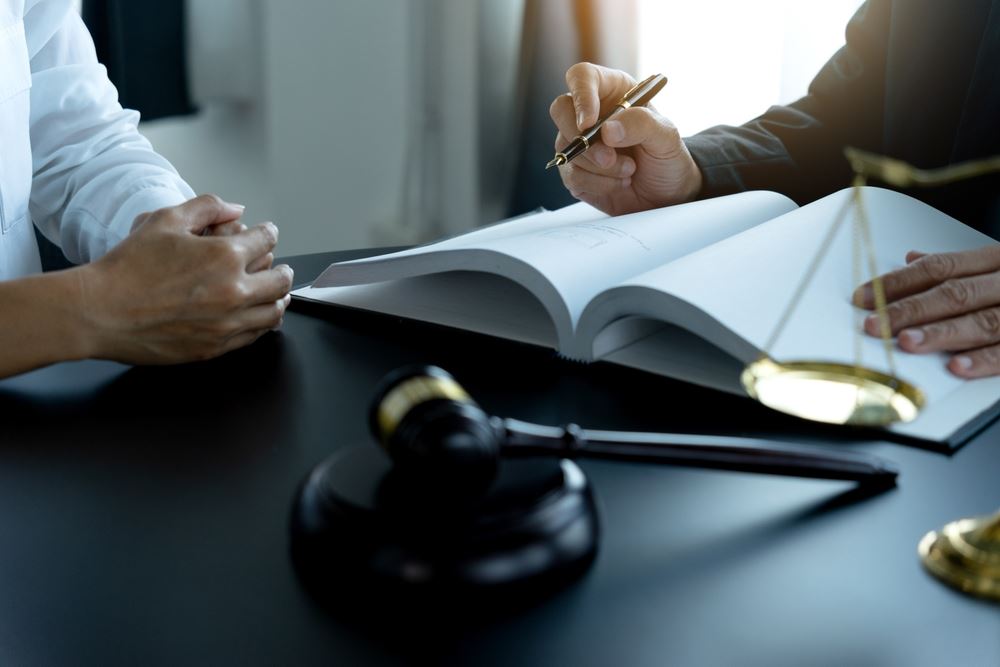If you’re facing legal trouble, you might wonder, “Who is the best criminal defense attorney for me?” It’s a common question, and finding the right Ohio criminal defense attorney can significantly improve the outcome of your case.
1. Experience Matters
Experience is one of the main factors to consider when looking for a criminal defense attorney. The more experience an attorney has, the better equipped they are to handle your case effectively.
Understanding the Legal Landscape

Experienced attorneys have a deep understanding of the legal landscape. They are familiar with the laws, regulations, and legal procedures that apply to criminal cases. This knowledge allows them to confidently move your case through the legal system and make informed decisions on your behalf.
Strategic Insights
When an attorney has dealt with cases similar to yours, they can offer valuable strategic insights. They know which arguments are likely effective and which legal tactics to use. This experience helps them build a strong defense tailored to specific situations.
Relationships within the Legal Community
Experienced attorneys often have established relationships within the legal community. They may know the prosecutors, judges, and court staff involved in your case. These connections can be advantageous, as they can facilitate communication and negotiations, potentially leading to more favorable outcomes.
Problem-Solving Abilities
Experienced attorneys are skilled problem solvers. They have encountered many legal challenges and have honed their ability to find creative solutions. This can be particularly beneficial if your case has unique or complex elements that require innovative approaches.
Confidence in the Courtroom
Courtroom experience is essential in criminal defense. Attorneys who have spent years representing clients in court are more comfortable and confident in this environment. They know how to present arguments persuasively, cross-examine witnesses effectively, and handle unexpected developments with poise.
A Track Record of Success
One of the most convincing reasons to choose an experienced attorney is their track record of success. A history of achieving positive outcomes for clients facing similar charges indicates an attorney’s capabilities. It provides reassurance that they can effectively advocate for your rights and interests.
2. Local Knowledge Is Key
Local knowledge is a crucial factor to consider when choosing a criminal defense attorney. Having an attorney familiar with the local legal system can be highly advantageous for your case.
Understanding Local Laws and Procedures
Each jurisdiction may have its own set of laws and legal procedures. What’s considered acceptable in one place might not be the same in another. When you hire an attorney who practices in your area, they are well-versed in the specific laws and regulations that apply locally.
Experience in the Local Court System
The court system can differ from one locality to another. Different courts may have their own rules, practices, and preferences. A local attorney is familiar with the ins and outs of the local court system, which can facilitate your case’s progress. They know how to file documents correctly, schedule hearings, and interact effectively with court personnel.
Insider Insights
Attorneys with local knowledge may have insights into the tendencies and preferences of judges and prosecutors in your jurisdiction. This knowledge can help shape your defense strategy. They may know which arguments are likely to resonate with local decision-makers, increasing your chances of a favorable outcome.
Accessibility and Availability
A local attorney is typically more accessible and available to meet your needs. You can schedule in-person meetings, which can be used to discuss your case and address any concerns. This level of accessibility fosters better communication between you and your attorney.
Community Understanding
Local attorneys often deeply understand the community in which they practice. They are aware of local issues, demographics, and other factors that can be relevant to your case. This understanding can help tailor your defense strategy to align with the specific circumstances of your jurisdiction.
3. Reputation and Reviews
When considering a criminal defense attorney, checking their reputation and reading reviews and testimonials can provide valuable insights into their qualifications and client satisfaction.
Assessing Reputation
An attorney’s reputation is like their professional image in the legal community. It reflects how they are perceived by their peers, judges, and other legal professionals.

A positive reputation often indicates an attorney’s competence and ethical conduct.
- Credibility: A good reputation can enhance an attorney’s credibility in court. Judges and prosecutors may give more weight to arguments a reputable attorney presents.
- Negotiation Power: When dealing with prosecutors, a well-regarded attorney may have more influence during negotiations, potentially leading to better plea deals or reduced charges.
- Respect: Attorneys with a positive reputation are typically treated with respect by court staff and other lawyers, which can improve the overall handling of your case.
Reading Reviews and Testimonials
Online reviews and client testimonials provide a window into an attorney’s track record and how they have served their clients. While no attorney can guarantee specific outcomes, positive feedback from others can be an encouraging sign.
When reading reviews, look for:
- Successful Outcomes: Look for reviews mentioning successful outcomes or cases where the attorney achieved favorable client results.
- Communication Skills: Assess comments about the attorney’s communication skills, including how well they kept clients informed and explained legal matters.
- Availability: Reviews may provide insights into an attorney’s availability and responsiveness, essential for a smooth attorney-client relationship.
- Compassion and Empathy: Consider reviews highlighting the attorney’s compassion and empathy towards clients, as these qualities can make a significant difference during a challenging legal process.
Consistency in Reviews
When evaluating reviews, pay attention to consistency in feedback. Multiple positive reviews highlighting the same strengths, such as effective communication or a strong courtroom presence, can reinforce the attorney’s capabilities.
Negative Reviews
While positive reviews are encouraging, it’s also important to consider any negative feedback. No attorney is perfect; some negative reviews may be based on misunderstandings or isolated incidents. Evaluate the overall balance of reviews to form a more complete picture.
Consultation and Gut Feeling
Consider scheduling a consultation after researching an attorney’s reputation and reading reviews. Meeting with the attorney in person or virtually can help you gauge your comfort level and trust your gut feeling about whether they fit your case.
4. Communication Skills
Effective communication between you and your attorney is critical. A skilled attorney should be an attentive listener. They should take the time to understand your concerns, anxieties, and any details relevant to your case. Listening carefully allows them to tailor their approach to your specific needs.
Explaining Legal Matters in Plain Language
The legal world can be complex and filled with unfamiliar terminology. A good attorney can explain legal matters in plain and understandable language. They should ensure you grasp the implications of legal actions, potential consequences, and the choices available to you.
Keeping You Informed
Transparency is a cornerstone of effective communication. Your attorney should keep you well-informed about the progress of your case. This includes updates on court dates, developments in your case, and any changes in strategy. Knowing what’s happening every step of the way can alleviate stress and uncertainty.
Accessibility and Responsiveness
Accessibility is another essential aspect of communication. You should feel comfortable reaching out to your attorney with questions or concerns. A responsive attorney promptly addresses your questions and provides timely responses. This accessibility can foster trust and a sense of partnership in handling your case.
Empathy and Support
Beyond legal advice, a compassionate attorney can offer emotional support during a challenging time. They understand the stress and anxiety that often accompany legal proceedings and should empathize with your situation.
Adapting to Your Preferences
Effective communication isn’t one-size-fits-all. A skilled attorney will adapt to your communication preferences, whether it’s through in-person meetings, phone calls, emails, or video chats. They should accommodate your needs to ensure a smooth attorney-client relationship.
5. Legal Fees and Transparency
Legal fees and transparency in billing practices are crucial considerations when choosing a criminal defense attorney. It’s best to clearly understand the financial aspects of your legal representation to ensure it aligns with your budget and expectations.
Upfront Discussion of Fee Structure
A reputable attorney should discuss their fee structure with you upfront, ideally during the initial consultation. This discussion allows you to assess whether the attorney’s fees are within your budget and to make an informed decision about moving forward with their services.
Free Initial Consultations
Many attorneys offer free initial consultations. These consultations allow you to discuss your case, ask questions about legal fees, and get a sense of whether the attorney is the right fit for you. Taking advantage of this offer can help you make an informed decision without incurring any initial costs.
Transparency in Billing
Your attorney should clearly explain their fees and how they bill for their services. This transparency ensures that you understand what you are being charged for and helps prevent any surprises down the road.
Billing Methods
Attorneys may bill clients in different ways. Common billing methods include hourly rates, flat fees, or contingency fees (typically used in personal injury cases). Understanding the billing method and the associated costs is critical for budgeting and financial planning.
Potential Additional Costs
In addition to attorney fees, additional costs may be associated with your case, such as court filing fees, expert witness fees, or expenses related to gathering evidence. Your attorney should discuss these potential additional costs with you so that you can budget accordingly.
Payment Plans and Options
Some attorneys may offer payment plans or flexible payment options to accommodate clients with varying financial situations. If this is important, discuss payment arrangements during your initial consultation to ensure they can be accommodated.

Fee Agreements in Writing
Attorneys should provide fee agreements in writing. This document should outline the fee structure, billing methods, any additional costs, and payment terms. Having a written agreement ensures that you and your attorney are on the same page regarding the financial aspects of your representation.
Budgeting for Legal Expenses
Understanding the total cost of legal representation allows you to budget for legal expenses effectively. This ensures that you can manage your finances during your case withou`t unexpected financial burdens.
8. Consultation Is Key
A consultation serves as your first interaction with the attorney. It’s an opportunity to understand who they are, their background, and their approach to handling cases.
Assessing Comfort and Compatibility
Meeting with an attorney lets you assess whether you feel comfortable working with them. Trust and comfort are crucial in the attorney-client relationship. You should feel comfortable discussing your case and confident in the attorney’s ability to represent your interests.
Case-Specific Discussion
During the consultation, you can discuss the details of your case openly. This includes sharing relevant information, such as the circumstances of your arrest, the evidence involved, and any legal concerns you may have. The attorney can provide initial insights into your case and potential strategies.
Experience and Qualifications
Use the consultation to inquire about the attorney’s experience and qualifications. Ask about their track record in handling cases similar to yours. Ask about their familiarity with local laws and court procedures, which can be beneficial in criminal defense.
Approach and Strategy
Discuss the attorney’s approach to handling cases. What strategies do they typically use? How do they tailor their defense to the unique aspects of each case? Understanding their approach can help you assess whether it aligns with your goals and expectations.
Ask Questions
Feel free to ask questions during the consultation.
Some questions you may ask include:
- How long have you been practicing criminal law?
- Have you handled cases similar to mine before, and what were the outcomes?
- What is your overall strategy for defending clients in criminal cases?
- Can you explain the potential timeline and steps involved in my case?
- How do you handle client communication, and what is your typical response time?
- Are there any potential challenges or risks I should be aware of in my case?

Speak With a Criminal Defense Lawyer Near You Immediately
Finding the best criminal defense attorney for your needs involves considering factors like experience, local knowledge, reputation, communication skills, fees, and personal recommendations.
It’s a huge decision that can significantly impact the outcome of your legal proceedings. Take your time to research and consult with potential attorneys to make an informed choice that aligns with your unique situation and goals.


